Top Ten Japanese Horror Books
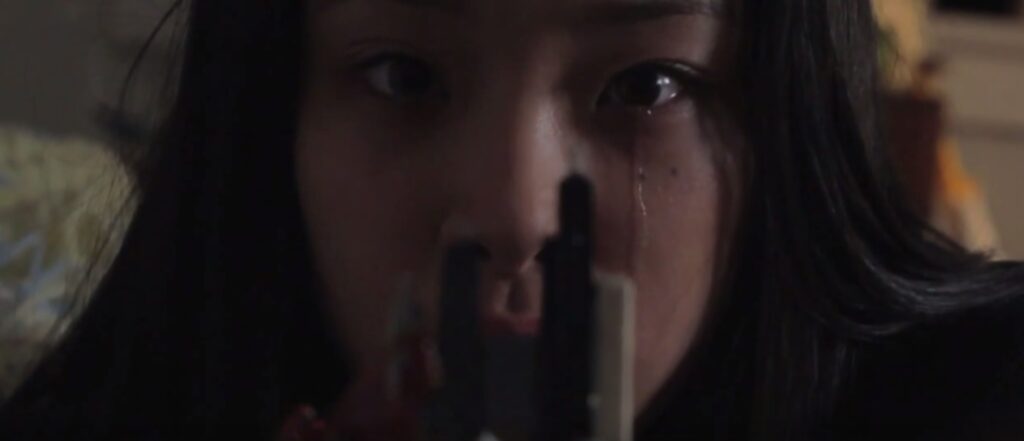
I really don’t believe that the Japanese horror craze has died down so much since the early 2000’s. Or rather, I can’t believe it has, given that there is still so much creativity to be put on display with Japanese horror, as a genre and as a medium that is, for lack of a better pun, splattered across anime, manga, movies and books that still come out every year celebrating it. There have been some books, in particular, that have stood out among everything else, and some of these books have been turned into movies and anime and the whole nine. Some of these books were really kind of responsible for the whole J-horror wave reaching worldwide status, but most people might not have even known this had it not been for the movie counterparts of these books I’m talking about. And that’s okay, in a way, because I’ve found a certain sense of joy from reading a newly translated book of an older Japanese horror movie, as it allows me to be scared and shocked all over again, but in a way that depends on me using my imagination to fill in the visual blanks. It’s a good thing. Honestly.
Still, whenever I’m done reading a Japanese horror novel, whether it’s one that is based on a Japanese horror movie I’ve seen a thousand times or it’s a new story I’ve never read or heard of before, I’m often left with this kind of bitter feeling in my stomach. I’m bitter because I know that I may have to wait many months, or sometimes even a year or more, before I can get another fix of Japanese horror from a book. That part earlier on where I said how books and movies come out every year celebrating Japanese horror is more in reference to the movie side of things, as there certainly doesn’t ever seem to be any shortage of J-horror films available to watch, thankfully. But I’m more hungrier these days for a good Japanese horror book to plummet deep into for hours on end, simply because I’ve become a Japanese horror writer myself. I really have found a new sense of appreciation for the written word as it pertains to discussing the violent and the severe side of life, especially when it comes to the horrors that plague Japan, both in the imagination of Japan’s finest authors and in the everyday, suicide and bizarre murder drenched reality of what it’s like to live in the Land of the Rising Sun. I guess becoming a writer kind of opens you up to the other side of telling a story, the side where you are responsible for every drop of blood that gets spilled on the page. I like being on this side, as it’s kind of fun to see people’s reactions to what I’ve decided to write about. Just getting feedback from those who were kind enough to tell me their thoughts on KAI, my debut Japanese horror fiction novel, I’ve come to realize how powerful words can be to another human being. Much more powerful, perhaps, than having somebody sit down and watch a horror movie. Not saying that movies or horror movies don’t have that kind of lasting, unforgettable effect on the soul. They surely do. I will never forget watching Suicide Circle the first time, or Audition, or The Grudge. But at the same time, there’s something that feels much more penetrating to me about reading something so intensely gory or violent or horrific that I’ve actively participated in, simply because words on paper need my imagination to act upon them. And that’s where Japanese horror books have no equals.
But back to feeling bitter… I think often about what my friend, the great translator Michael Emmerich (you might know him if you have read many of Banana Yoshimoto’s English translated books, as Michael has done most of them), said to me one day while we met for coffee at UCLA. He told me how getting Japanese books translated into English is a difficult and long process, and something that can come unhinged with a tiny misstep. Or simply because an author decides they don’t want their work translated anymore. Or because the powers that be decide to not spend any money on the translations because they don’t see a need for it to exist. That’s kind of frightening and possibly more horrific than some of the books on my top ten Japanese horror books list, don’t you think? I don’t want to diverge into a political or social commentary about why people should support the arts more and in particular, helping to get Japanese books translated into English more frequently, but I think it’s just that when I read about a new horror book coming out by a Japanese author that has been translated into English, I have this moment where I feel like I won a six-figure lottery, and then the day comes when the Japanese horror book arrives in the mail and while I’m reading it, I’m truly savoring every moment on every page, and then after it’s done, I can’t help but feel despair because I know that feeling won’t come for possibly a long time again. Maybe that’s a good thing, in a way, because it helps me to appreciate what I’m reading a lot more, but it also kind of makes me want to just go back and reread some of the better Japanese horror books I’ve read to pass the time until the next announcement is made for the next Japanese horror book to be made available for moi.
And this is where my top ten Japanese horror novels comes into play.
10. Confessions (Kokuhaku), by Kanae Minato

Gotta start with a book that I consider to be one of the smartest and craziest Japanese stories ever written. And it’s also been perfectly adapted to the big screen too, as the adaptation perfectly captured what was written on the page. But what might be the single craziest thing about Confessions? It was written by a housewife named Kanae Minato who wanted to overcome her boredom while doing her household chores. Now, if that’s not scary and crazy and already a great introduction to a story, then I don’t know what is.
When you get into the book, you see that it’s told from various perspectives, all of which fuck with your idea of what is going to happen or has happened. This is every effective in disorienting you as a reader, and this is done with the intent to add a sense of dread to what you can see is coming, or what you might think is coming, for all the characters in play.
At the heart of it is a story about a mother who lost her daughter, and about a boy who killed this mother’s daughter to get the attention of his own mother. And it gets more layered and complex from there.
I won’t go into it too much, as I’ve already discussed it at length on my Top Ten Japanese Horror Movies That Are Crazy list. It also really vexed me to put this book on this list because of the fact that it’s been translated supremely well into a movie and I think more people might actually enjoy the film version of Confessions, as opposed to the written version. However, I can’t count it out either. It’s just one of those books I simply couldn’t put down, not even for a moment, and finished it pretty much in a few days. I don’t even think it was that long, actually. Keep in mind, this was AFTER I had watched the movie a billion times, because the English translation only recently has made its way across the Pacific to all of us English Speakers who love Japanese horror. This should be a testimony to what a wonderful, disturbing, psychological terror of a book that Confessions will be when you read it. A real page turner for sure.
9. Ring, by Koji Suzuki
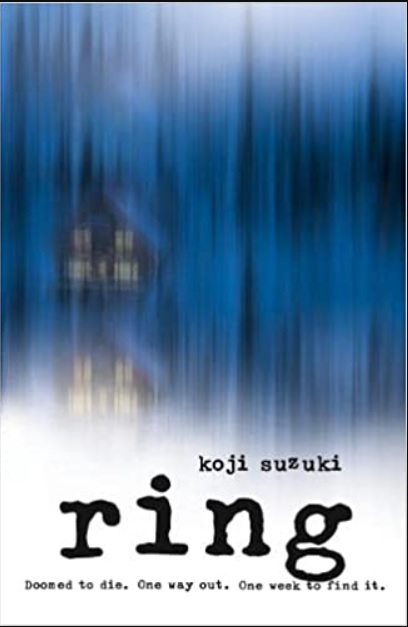
Ring is another book that kind of suffers the same fate as Confessions, in that it was far more effective as a movie than a book, at least in terms of Western Audiences being first introduced to Sadako Yamamura and her never ending curse cycle. Maybe this might also have been true for Japanese audiences as well, because the first time you see Sadako jump out of the fucking television and have that long, jet black hair covering her face while she’s dressed in a funeral garb and she’s heading your way, you probably will never be the same again. It’s the ultimate modern expression of the traditional Japanese Yurei tale, but with a technological twist. And it works on so many levels, both horrific and psychological, that you can’t look away from either the book or the movie or both, depending on which medium you choose to scare the shit out of yourself.
Koji Suzuki, the author of RING, does a great job in the other RING CYCLE books to really expand this idea and concept of a never-ending curse, though I think RING is the one book out of all of them that really has resonated so deeply with audiences everywhere. But if you want more backstory, or variations on Sadako, such as seeing her as an aspiring theater actress who didn’t quite make it all the way to the big stage, as opposed to a young girl thrown down a well, then you should check out all the other books in the RING cycle (i.e., LOOP, SPIRAL, BIRTHDAY). And if you want to see more of the brilliance of Koji Suzuki as an author who knows how to write scary shit, definitely check out the book version of DARK WATER. It’s just as good, if not better, than the movie adaptation.
Speaking of movie adaptations, RING gets put on this list so high for that reason, and despite the somewhat hypocritical number one book I have listed on this TOP TEN JAPANESE HORROR BOOKS list that was very famously made into a movie, I think to me this is another example of a Japanese horror book that suffered in silence behind a tremendous movie adaptation that overshadowed it on every level. Both Ringu and the American version of Ring were remarkable, and I’m willing to bet people didn’t even realize there was a book behind it all. I mean, Koji gets called the Stephen King of Japan, but when Ring hit American Shores as a movie with Naomi Watt some years ago, the movie wasn’t called RING, by Koji Suzuki. With Stephen King, anytime there is a movie based on his books, it’s like a law or a contractual requirement that his name has to be mentioned in conjunction with the movie adaptation of whatever horror book he’s written that got turned into a film. Or maybe the movie companies know that Stephen King’s name alone can bring people to the theaters. So I guess if there are anymore Koji books adapted in the near future and brought to American shores, we probably won’t be hearing his name anytime soon next to the movie title of his adapted book, being that Koji’s name isn’t known at all here in the states, even now. I think that should change though. And I think if you are reading this list and hearing about his name for the first time, PLEASE go check out all his books on Amazon. He has several other English translated books, and honestly, ALL Of them are great, and many of them deserve a place on this TOP TEN JAPANESE HORROR LIST. However, I didn’t want Koji to cannibalize the list too much, as I already have another author who has done that, and that author’s first entry on my list is next.
8. Odishon, by Ryu Murakami
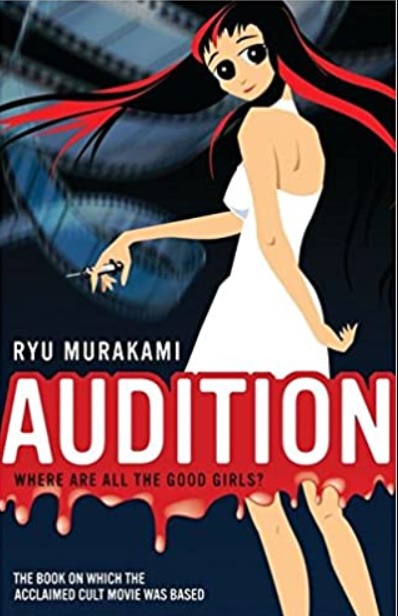
Ryu Murakami. Oh boy.
He’s just one of those authors I can read forever. Everything he’s put out, with the exception of Sixty-Nine, I have enjoyed to some varying degree or another. I actually have a few of his books on this list too, being that Ryu specializes in horror, above all things. That, and shocking the living piss out of you!
So when you talk about Ryu Murakami and anything he’s written, you have to talk about Odishon, which is like Confessions and Ring when it comes to the world probably first knowing about this fucked up story because of the Takashi Miike movie adaptation of it. And that’s okay, because both the book and the movie work well together and pretty much don’t deviate all that much in terms of the plot development and what’s being shown to you, both visually and in print. BUT, Odishon is one of the stories that it doesn’t matter what medium it’s told in necessarily, because it’s so creepy, so scary, and so real on some level, that you can’t help but feel like you have to look over your shoulders in some parts of it. Yeah, it’s THAT scary.
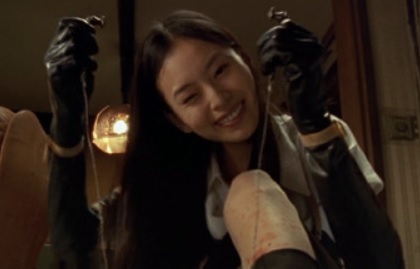
But perhaps scary on a psychological level, like most Japanese horror books are? Psychological horror is the best kind of horror I think, and Odishon is right up there with Confessions in terms of messing with your mind and making you think one thing about a person and something else turns out to be true about that person, and that something else is so terrifying and frightening if it’s real that you might actually think you’ve met this person before. Ahhh, I hate talking in code, but I don’t want to give away anything about this book, except maybe this:
Guy loses his wife.
Guy decides to find a new wife to marry.
Guy puts on a fake audition for a movie to find a suitable partner.
Guy finds an absolutely beautiful stunner of a girl, but who is mentally screwed in ways he can’t even begin to understand or know.
Guy becomes the subject of this girl’s obsession.
Girl wins.
Okay, so maybe that’s saying a bit too much, or maybe I’m oversimplifying things just a little, but let me put it to you another way…. Imagine that you’ve met somebody online and she’s beautiful and kind and seemingly perfect, and then that veneer of perfection gets chipped away, and you realize you might be dealing with somebody who will go to any length and depth to satisfy herself, even if it means putting you in a position where you, uh, won’t be able to leave her, no matter how hard you try to “walk” out on her.
Hope you caught what I just did there.
7. Body, by Asa Nonami
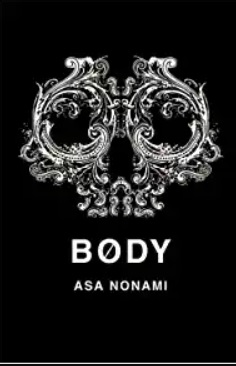
Asa Nonami is one of the more quieter Japanese literary voices to have been translated into English. But she’s released a few gems, including The HUNTER, for which she won the prestigious Naoki Prize for, and also NOW YOU’RE ONE OF US, which is how I first discovered her. That’s another good read that is somewhat horrific. Well , sort of I guess. It’s more about being trapped in a family that nobody has any business being part of, which I guess in its own way can be filed under the “horror” category?
Anyway, BODY is a collection of horror stories all written with regards to parts of the body, like the butt, the face, hair, and so on. This is a quick read, something you might be able to clear in one sitting even, as it’s barely under 200 pages. It also can be read rather quickly because the stories flow effortlessly and all have this kind of cascading feeling to them, as though you will always feel like you’re tumbling into the climax of each story instead of just… arriving there. At least that is how I felt reading BODY. If I compared it to Yoko Ogawa’s horror story collection in her book, REVENGE, that book seemed to move much slower to me for some reason. Maybe that might just be due to the fact that Yoko’s writing style is kind of slow-paced or something. Or maybe because it would seem that Yoko’s first choice to write a story doesn’t feel to me like it would be a collection of horror shorts.
Asa, on the other hand, seems so comfortable telling you these stories in BODY that I felt like she was sitting across the table from me talking about these people she knew who are portrayed in each story in the book. My particular favorite was the story about plastic surgery and how that can become an obsession for its main character. In fact, I would say that that obsession is at the heart of most of these stories. Another story in BODY, the one about the high school girl Hiroe who gets fixated so deeply on losing weight after somebody comments on the size of her ass… well, it’s obsession that you don’t want to admit you might have the ability to fall victim too. I think it’s also truly kind of shocking when you see the depths that these people go to fulfill their obsessions. And yet, you might find that the most scariest thing about BODY is that you could be the main character in any one of these stories, as anyone can relate to being called fat and feeling psychologically damaged over that kind of a mean comment. And maybe you get so damaged you will try to starve yourself enough to never have to take a shit again in your life.
Poor Hiroe.
One unfortunate note to the American release of BODY is that the book is in dire need of an editor, and the translation can be rough at times. And you might even want to argue that it’s not a true collection of horror stories either, but rather disturbing tales about the normal becoming the abnormal. But I would argue that this is the same thing as horror. And also, I just felt really kind of creeped out and tense when I got done reading BODY, though maybe this might have been because I powered through the book in one sitting? Nah, it’s truly a gem of a horror book, and it’s fucked up in the best kind of way, i.e., it’s a familiar horror, one that is only one visit away to the plastic surgeon or one negative comment about your ass.
6. Another by Yukito Ayatsuji
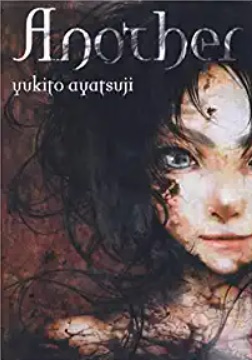
And now I’m going to totally seem like I’m running in the entirely opposite direction and talk to you about ANOTHER, which was kind of a more successful anime first before becoming a fucking creepy as hell Japanese horror book. That’s because of the serious lag time in translating this to English, of course, but it wouldn’t matter if you’ve seen the anime or not: ANOTHER is truly a defining JAPANESE HORROR BOOK.
Now, before I get into what it’s about, I should say that I adored the anime and even have figurines from the Anime sitting on my bookshelf. I also considered getting a tattoo of one of the main characters in the book somewhere on me. That’s how deeply I loved this story and the anime. The book was slightly more difficult for me to digest though. There are two reasons for this.
First, the story endlessly repeats itself. I’m not even kidding either. The book could’ve been half of its nearly 500 page count size. It literally will summarize and re-summarize what is going on in almost every part of the book. And on top of that, there are parts that go on and on about the theories as to why what is happening is happening to the characters in the book. It’s sometimes so obnoxious that you might be tempted to skip ahead in parts. I know I did.
Second, there are some logic holes in the story that even if you were to just chalk it up as being part of the overall supernatural elements of the story, you might really just question certain things about the rules of the curse of Class 3. Speaking of which, I guess I should stop and give you a super brief plot outline:
Koichi is a Middle Schooler who has transferred to North Yomiyama Middle School. He soon notices that nobody wants to talk to him and basically treats him like a total pariah. Then people start dying around him. Then Koichi finds out the people dying are all part of the curse of the class he’s just transferred into, and the class thinks the reason people have started dying is because of him. There’s a girl named Mei who doesn’t give a fuck about any of this and is bad ass and my favorite person in the whole story, and she has also been treated the same by the class. And it all has to do with this curse of class 3, which has gone on for many years and once it’s triggered, there seems to be no way to stop it. Except…
Okay, so to go any farther would give you too many hints about where the story is going to go. I will just say that the ending payoff is pretty awesome, so it’s worth all the plot holes that are going to spring up when you read this story, and also the fact that it goes on and on about the curse, the rules of the curse, and constantly summarizing everything that has happened in every part of the story. I will also say that you will probably fall in love with Mei, just like I did, because she has this completely apathetic quality to her that makes you want to know more about her, who she is, and why she is the way she is. She kind of reminds me of Paruru from AKB48, the whole salty disposition that this idol girls has which is definitely shared by Mei. I tend to like girls like this for some reason, so maybe that is why Mei appealed to me so much?
Oh, and when you find out about her backstory, it’s really fulfilling too, but that’s all I’ll say.
You also will care about the characters more than you might think. And when you find out that it seems if Class 3 ignores the person in the class who doesn’t belong, who is the one that the title of the book refers to, then the curse gets broken. But it seems that isn’t all there is to stopping the gruesome deaths. Or is it?
One last thing… the first few chapters of the book are RIVETING. They will keep you hooked in a big way. When the book devolves into a lot of explaining in the middle section, you’ll find it a harder read than it initially was, but by the end, it picks up again and delivers a great payoff. And definitely it retains an ultra-creep factor throughout it. Imagine… what would you do if you were responsible for people dying and were expected to just assume the position of being ignored in school, and treated like you didn’t even exist… by everyone in the entire SCHOOL? Creepy indeed to think about this, wouldn’t you say?
5. Piercing
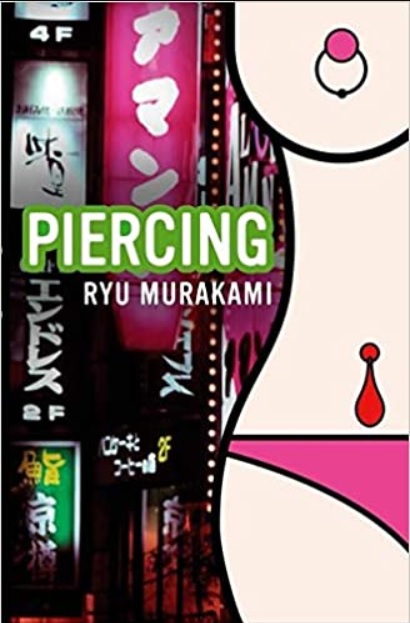
Fucking Ryu Murakami. Again.
So this story is more straightforward than ANOTHER, and much more easier to enjoy and get into as well. Sadly, no movie version exists that I’m aware of, but maybe that’s a good thing, because this story has lived in my mind for a long time now, and maybe it should stay there too?
And here’s why….
Kawashima is your typical Japanese guy, in that he’s hard working, married, has an infant daughter named Rie. He’s also totally fucked in the head. Okay, maybe that last part isn’t “typical” of Japanese guys and I surely jest with writing that, but he has an abusive past. So abusive, in fact, that he can’t deal with his life when nobody is looking and one night finds himself standing over Rie while she’s sleeping with an ice pick in his hand, and fantasizes about stabbing her to death. And he does this for like ten days straight.
So what does Kawashima do? What any Japanese person might do when living in a country with no kind of real mental health support system in place. He books a hotel room, orders a prostitute who is very young and small, and decides he’ll kill her instead. The problem though is that Sanada Chiaki, the prostitute, isn’t exactly the willing victim he had hoped for.
This is one of my all-time favorite books. Like EVER. It held my attention, which I guess probably wasn’t all that hard to do considering it’s barely 200 pages, but more so because Chiaki is incredible. When she comes into the story, you start to see things from her perspective, start to hear what she’s hearing in her head, and then you realize that Kawashima isn’t the only one hearing voices telling him to hurt somebody. And it’s just one of those strange morality tales that you don’t even realize is a morality tale. This is like Odishon-lite in that sense. I think the story really kind of makes you so wish the characters were real and you could see them in their moment together. I would have given anything to have been a fly on that almost bloodstained wall of that hotel room Kawashima and Chiaka kinda sorta shared. Then again, the story is written so exceptionally well that it left just the right amount to the imagination, and I have a VIVID imagination, so I’ve already been that fly on the wall, I think, in this story. Many times.
Some people criticize the ending, saying it was too rushed or whatever, but I say fuck off if you think that way about PIERCING. It ends just as quickly as it begins, and doesn’t overstay its welcome, and honestly, the best part is with Chiaki and Kawashima anyways, and you don’t really need to get all weepy and introspective at the end of the book. I think this is a rare case of an editor probably slashing 50 pages from the end of the book and it turned out to be a situation where no reader might want to read another 50 pages despite loving the story so much they wished it could’ve kept going. I know that probably didn’t make sense but trust me, when you read the story, you’ll see why you’ll both love it and want to put the book down and run out of the room when you’ve reached the final page. It’s creepy, thoughtful but not too thoughtful, and you will KNOW Kawashima and Chiaki by the time you’re finished reading. I guarantee it. I didn’t even have to go on Amazon and look up anything about this book, and I read it way the fuck back in 2007. It stays with you in the best but scariest kind of way.
Oh, and the moral of the story? Just like in Odishon, it’s simple: Don’t hook up with a Japanese girl. EVER.
4. People Who Eat Darkness by Richard Lloyd Parry
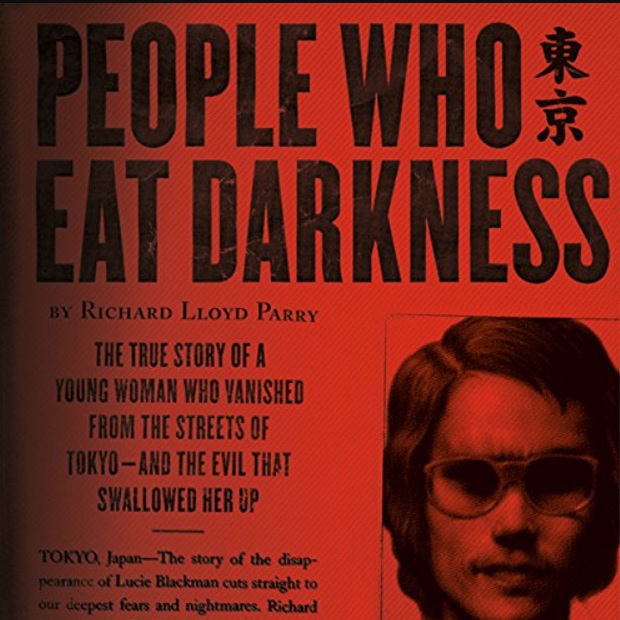
This is truly the oddball entry on my list of the TOP TEN JAPANESE HORROR BOOKS currently available to read in English. And it didn’t even need translated, actually, because this is a non-fiction story written by a British dude. And yes, I know it’s not horror in the sense that there are no Yurei floating around, or deranged Japanese girls wanting to either kill themselves or those around them. This, actually, is much, much more sinister.
Lucie Blackman, a beautiful blond haired twentysomething from England, came to Tokyo and worked as a hostess in a Roppongi nightclub. She wanted to pay off some debts, see the world, and just live the life that young, adventurous guys and girls like to live. She didn’t expect to be drugged, raped, and murdered by the Japanese-Korean playboy, Joji Obara.
If that was all there was to this story, it might not seem all that horrific, unless of course you are related to Lucie or knew her in some way. If you are, my condolences and I mean that sincerely. However, the part that is really, REALLY fucking brutal is just how FUCKED in the head Joji really was. I won’t give it away, but Richard does a meticulous job of showing the psychological complexity behind Joji and why he did what he did. And he didn’t just do what he did once, but many times.
It’s equally scary in the sense that this happened in Japan, of all places, to a European woman. This kind of thing doesn’t happen to Westerners or white people in general when they come to Japan. And it’s even more scary to think it happened because Lucie felt comfortable in Tokyo. As a person who has lived in Tokyo, I’ve never felt scared even once walking the streets late at night, and I didn’t feel like I was in a place where I could be hurt or taken advantage of. Japanese politeness is rather overwhelming in Tokyo and just about everywhere else in Japan, for that matter. Ironically, I would have to say that my least favorite place in Japan is Roppongi, simply because it’s foreigner central and fully of scammy types who WILL take advantage of you. And I suppose you can argue that Lucie was in the one place in Japan known for NOT being all that straight and narrow. You could perhaps add some parts of Osaka, Hiroshima, and Kabukicho to possibly unsafe areas for gaijin. Lucie put herself in a place where she shouldn’t have been if you look at it this way, but that STILL doesn’t mean she is to blame for what happened to her. She met a monster in Joji Obarra, and he unfortunately tricked her into thinking he was anything but the person who would eventually do unspeakable things to her.
The book, overall, is somewhat TOO meticulous at times, I’ll admit. But it’s a page turner at times as well, and when you get into the details of what happened to Lucie and all of Joji’s other victims, it’s impossible to stop reading this Japanese horror book. And yes, it DOES qualify as horror in my eyes. It’s the worst kind of horror too, in that it’s all true. So I’m giving you the official warning right now that reading this book is like the male version of Ryu Murakami’s Odishon, and if you’ve read Odishon, well………..
3. Gold Rush by Miri Yu
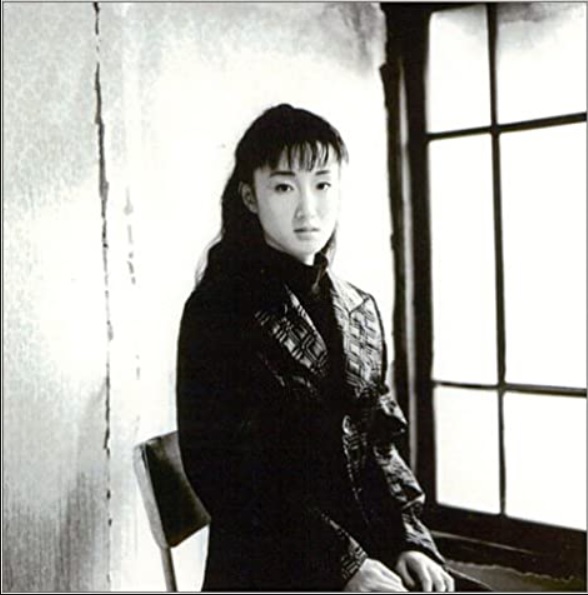
Miri Yu is a Korean author who was born in Japan and I think identifies herself with being more Japanese than Korean, being that it seems she has lived in Japan for most of her life. Conversely, the official Wikipedia page for her states that she is a citizen of South Korean. I’m wondering if that’s still true.
Anyway, Miri Yu has only one published book in English to date, and that’s Gold Rush. This is probably another book a person might raise their eyebrows at by being on this list. You might be thinking to yourself, why didn’t I include Natsuo Kirino’s Real World on here, or The Crimson Labyrinth, or Strangers, or The Summer of the Ubume, or any of several more Japanese horror tales?
Well, I think, for me at least, Miri’s story really jumped off the page more than any of those other books I just mentioned did. It’s so graphic when it comes to describing the horrific things that happen in the book, like the gang rape at the beginning of the book, and the murder that follows, and other brutality, that I really felt like I was physically witnessing the 14-year-old main character, Kazu Yuminaga, descent into violence. I also think that when you take from your real life and frame it in the context of a fiction novel, you almost can never escape the reality behind the fiction that you’ve opted to use to tell a story. That story becomes YOUR story, and the old adage about writing what you know becomes more than just a catchy way to write honestly, but it also is the signpost that hangs above the door to entering into a world better left alone. That signpost, by the way, usually is hanging right above the other signpost atop that door, and it says DO NOT ENTER.
What am I talking about? Well, I’m fairly sure Miri Yu has been the victim of some kind of violence, for starters. I believe I had a discussion with a Japanese person who knew about Miri Yu’s works and said she mentioned as much before in interviews and maybe even in her writings. I don’t want to say this for sure, but I’m going to take a guess and say I’m more right than wrong about this. And the reason I bring this up is because Gold Rush is full of violence, and family violence at that. Maybe that’s just me being too empathic, but then again, maybe not? And Miri Yu these days seems to either have lost her mind, or she really is on some kind of other level type thinking, because she had reportedly sold her house in Kamakura to go move into Minami-Soma, which is just 25 Kilometers north of one of the Fukushima crippled reactors.
So yeah, Gold Rush is coming from the mind of a person who I believe has been through some horrible shit, to say it in the most generalized way possible. She also has no problem being extreme, and I equate extremism often with passion, and Gold Rush is a passionate exploration of murder, rape, living with a dead body, killing of an animal, sex with a minor, and bullying a mentally-challenged individual. And that’s just for starters.
I used this book as reference material when writing KAI, but not in the sense that I borrowed from anything that happens in the story. I don’t have one single relatable event in KAI that is in GOLD RUSH. I just really loved Miri Yu’s ability to tell the story found in GOLD RUSH. It was the kind of writing that understands how to give just enough to a reader to let their imaginations become active enough to stay engaged and wanting to find out what happens to everyone in the book. And yes, you will want to know the fate of Kazu, despite him being so despicable. The book ventures also into the surreal and doesn’t feel pretentious by doing so. It can be slightly jarring because it’s not something you would expect, but it’s effective nonetheless. And mostly, Miri is an author with something to say. I guess it doesn’t surprise me anymore at just how many authors put books out every single moment of the day that say either the same thing as the book they just put out a second ago before it, OR it says absolutely nothing of importance, or it doesn’t have an ounce of creativity to it. I can only hope Miri doesn’t die from radiation poisoning while spending time in Minami-Soma. Or rather, I hope whatever she is doing up there will result in her next Gold Rush being written. God help us all if that does happen.
2. In The Miso Soup
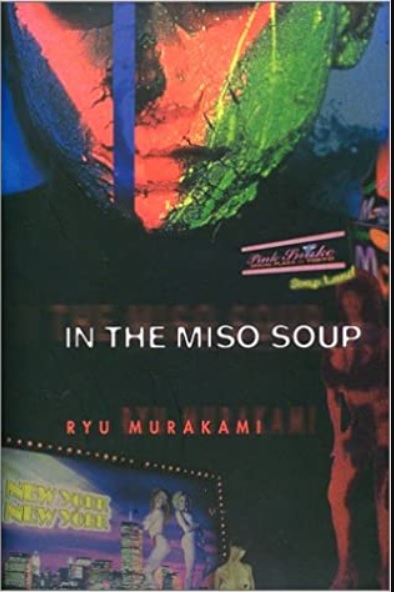
Fucking Ryu Murakami. AGAIN!!!
It’s really an incredible book when you read it and can’t get through the descriptions of murder contained within. I think one of the only other books that have ever made me feel that way is American Psycho, by Brett Easton Ellis. I am sure I don’t need to recap how horrific that book is when it comes to murder and torture and everything else macabre in between. What Ryu describes isn’t as extensive as what Brett describes in American Psycho, but it’s nevertheless not for the squeamish. Not. At. All.
What’s this book about? It goes a little something like this:
Kenji is the kind of guy you can hire if you are an American, have lots of money, and want to experience the nightlife in Japan in a way that only the Japanese can experience it. In Japan, if you are a gaijin, you can forget about going to any soaplands or crazy clubs where you can do all kinds of erotic things like get waited on by girls with no panties on and who wear super short skirts, or the fellatio clubs, or go sit in a cube full of jelly with two beautiful Japanese girls who will pretend to like everything about you. Yep, about the closest thing you will ever come to that if you are white and don’t speak Japanese is the host clubs, or I guess the maid cafes, but those are more for otakus than anything else. I suppose if you can speak exceptional Japanese, have friends in high places in Japan (or dark places, if you happen to know a Yakuza or two), or know somebody who can get you into a place, well then lucky you. But the reality is that most white men who go to Japan to experience the sexual underbelly of the Mizu Shobai will leave Japan very disappointed.
But not Frank, a fat American who hires Kenji to get in good with the females in Japan. The problem though is that Frank really isn’t so interested in this, as that is mostly a cover, and what he is really wanting to do is have a chance to kill. And by kill, I mean murder everyone in a club. Oh, and Frank wants to torture people right before he kills them too.
I remember first reading this book by Ryu Murakami and thinking that Kenji trusted Frank way too much, as there were so many tell tales signs that he was lying about his cover story he gave Kenji during their time together, right before the killing started. He said he had sisters in his family but then says it was only boys. Not such a big deal, but then he claims to know baseball in and out but yet, can’t even figure out how to hold a bat. Frank has no humanity in his eyes, and he was just acting off, and he talks about so many things that also seem “off” to Kenji. I won’t say what those things are, nor will I comment on the one gruesome scene in the book that trumps an overwhelming majority of what I’ve read or even watched in movies before that you could label as “gruesome,” but I will say that Ryu Murakami has written a true horror story that feels as real as it gets without touting itself on being based on some kind of a true story. How Ryu could envision the smells and emotions that you would find in a room of people getting slaughtered is just… beyond anything I could ever do as a writer. And the strange part? I kept wanting this book to go on and on, and it doesn’t. It ends right where it needs to, and ends as all good Japanese horror stories do, i.e., wrapped in ambiguity and leaving your imagination to figure out the kind of ending you want this story to have. I have the images of what Frank did to all those poor people still embedded in my mind to this very day, and I pray to God I never meet a real life Frank. And if I can say that and mean it, which I do, then what does that tell you about just how amazing this Japanese horror book actually is?
1. Battle Royale
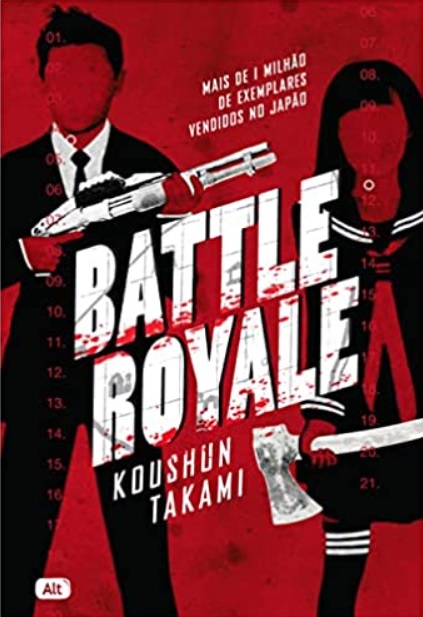
I had mentioned earlier that some of the earlier entries on this list were almost not included because of their movie adaptations trumping them. And many books didn’t make this list for that very reason too. Yet if I had to pick the best horror book I’ve read in the past twenty years, I would have to put Battle Royale, by Koushun Takami, as my top pick. The fact that it’s become a movie and even has a sequel, albeit a terrible one, is almost inconsequential. Oh, and there’s also various American Movies that have blatantly ripped it off (Hunger Games, anyone?), a nice Manga series based on it, and some of the characters in the movie adaptation reached worldwide fame because of it (Hi GOGO YUBARI! Or wait, I mean, Chiaki Kuriyama!). I think all these things happened due to the fact that it’s an absolutely perfect story, with a brilliant political subtext, and just the right amount of controversy behind it, and a kind of fluid terror at its heart. I mean, kidnapping an entire class of ninth graders, putting them on an island where they can’t escape from, and then creating a “battle royale” for three days of kids killing kids because the government demands that they do, until there’s one left? And if the kids refuse, they all die because of the explosive collars strapped to their neck that can be triggered at any time for doing things like trying to wait out the three days, or trying to escape the island, or doing anything else considered counter to killing each other? And if that wasn’t enough, the island has death zones that get activated at certain times throughout the day, and if you are caught in the zone, your collar is triggered and your head explodes?
It’s one of those crazy ideas that I wish I had come up with. There is symbolism abroad here, as the story can be looked at as kind of an allegory about Japan and its rigid societal structure. I am sure that part of the book is lost on American audiences, but I’m just grateful the book found its way to American audience via the movie adaptation by the legendary director, Kinji Fukasaku, and who also starred the legendary actor, Takeshi Kitano. When you add Kitano to anything, you know the movie is going to be fucked up!
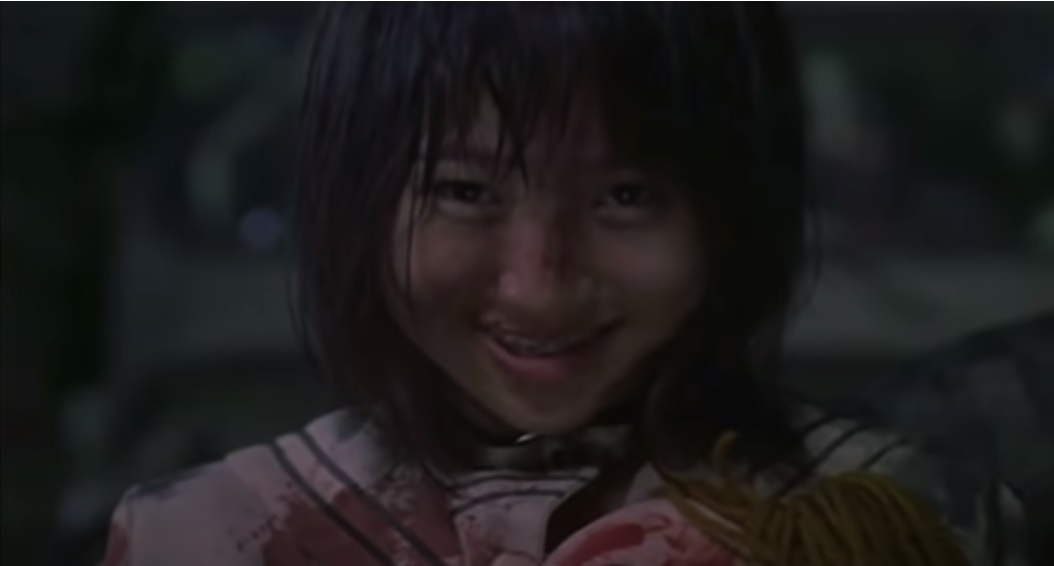
And so the book was, for the most part, faithfully adapted into a movie, which is really how the book probably even came to be known by so many people worldwide, as I’ve stated. However, the book does something for me on a whole other level than the movie did, which actually, that was not my first introduction to the story. I happened to read the book before the movie, and it stuck with me so deeply the first time I had read it that when I was on tour with From a Second Story Window and went all over America for the first time, I had made it my mission to find the Battle Royale Dvd. I did too, at Amoeba Records in San Francisco. And by then, I had worn my Battle Royale book out.
By the way, I didn’t just write all that just now to sound all hipsterish like I was in the know or anything and I’m better than you if you saw the movie before the book. Hopefully you’ve read enough of my posts on my site by now to know that’s not me at all. I am grateful the book landed in my hands no matter when I saw the movie, if it had been before or after I read the book for the first time. I do think there is an important distinction to make about the book and the movie though. The book really, really delves into the thoughts of the characters, right up to their time of deaths in the book, and the movie not so much. That did it for me on so many levels, writing-wise, because it taught me as a writer how to really live inside the mind of a character without it being too distracting or surreal-feeling that you were never sure what was going on with the actual story. No, Takami does a fucking perfect job of weaving between character thoughts and moving the story along with death after death of students who became victims, or who began to enjoy killing their classmates, or who were just trying to find a way off the island without killing anyone.
The horror component, aside from the plot, really comes into focus when you stop for a minute and actually think about this as something that really happens. What if it was YOUR child that was in the class chosen by the government to fight each other to the death? How do you justify having kids knowing one day you may have to sacrifice them to this government-regulated game of death? Or worse, what if it was your kid that killed all the others and was allowed to leave the island afterwards? Do you know how fucked up that kid would be? And that kid certainly would be a target from grieving parents, siblings, relatives, and friends of those your child murdered in order to save himself or herself? I mean, as a parent, how do you even comprehend your beautiful baby girl or boy entering teenage life and all those years you spent raising him/her simply ends purposely, without a single fucking thing you can do about it?
That’s horror to me.
There’s enough death and accidents and wars and disease and general fucked-up shit in this world that can claim your child’s life in a second that actually having a government sanction a game where your child’s life becomes forfeit over… not even sure what it would be over…. that I think it becomes overwhelming. Like in a way that invokes a dread that blots out hope of any kind. The movie kind of made the book pulpy, at times, but the book doesn’t stray at all from the dread and the horror of seeing kids you will come to care about die, one by one, and at the hands of each other.
I am not sure if Battle Royale can be considered horror or not by book standards. There’s no zombies or vampires or ghosts or grown men stalking innocent women. It’s about giving guns and knives and other assorted weapons to ordinary kids you would see sitting at a table in a school cafeteria and telling them they have three days to murder each other or they all die. It’s like the Lord of the Flies for the Modern Era, with a twist of what we sadly see on the news in our country, which is kids walking into schools and killing their classmates. Over and over and over again. So maybe in that sense, Battle Royale is exactly what we as humans may consider to be “horror,” right? I mean, ask yourselves:
Is there really anything else that can compare to this kind of horror?
By the way, if you like Japanese horror books, why don’t you give MY book a try? I wrote a Japanese novel book called KAI. You can purchase it HERE.
Subscribe To My Newsletter
JOIN THIS AND I’LL LET YOU KNOW WHENEVER I GOT SOMETHING IMPORTANT TO SHARE
Your email will never be shared with anybody or anything. I’m cool like that.
